
Find Help
More Items From Ergsy search
-

Can Music Therapy Be the Key to Reducing Anxiety?
Relevance: 100%
-

How does cognitive-behavioral therapy help with health-related anxiety?
Relevance: 45%
-
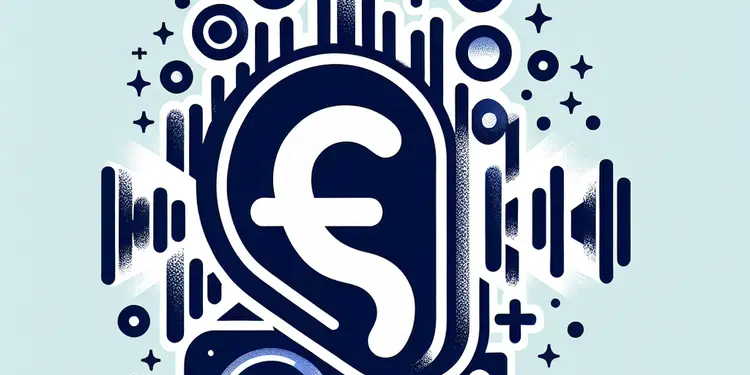
Can loud music cause tinnitus?
Relevance: 45%
-

Coping with Stress and Anxiety
Relevance: 37%
-
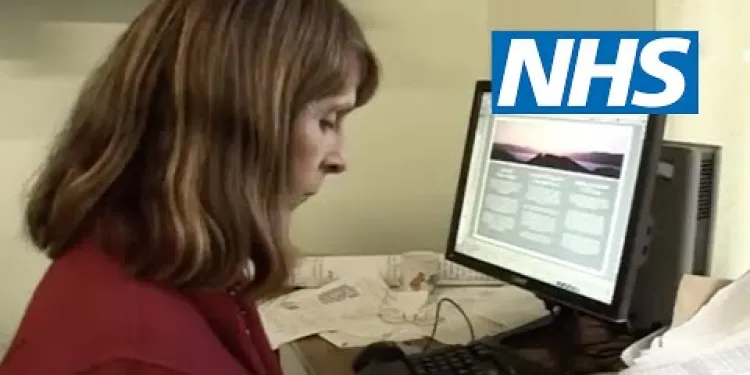
Anxiety | NHS
Relevance: 36%
-
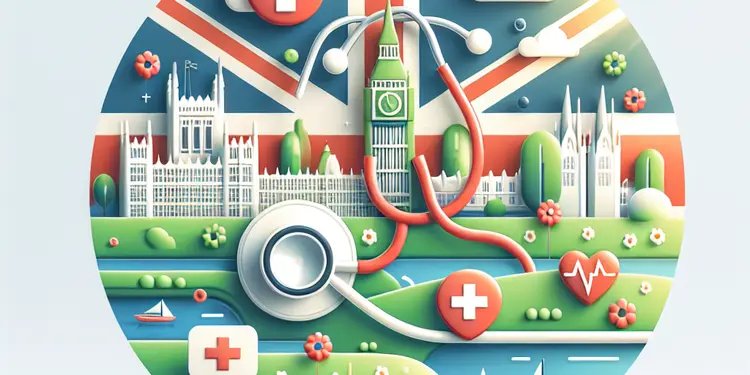
What are common treatments for health-related anxiety?
Relevance: 35%
-
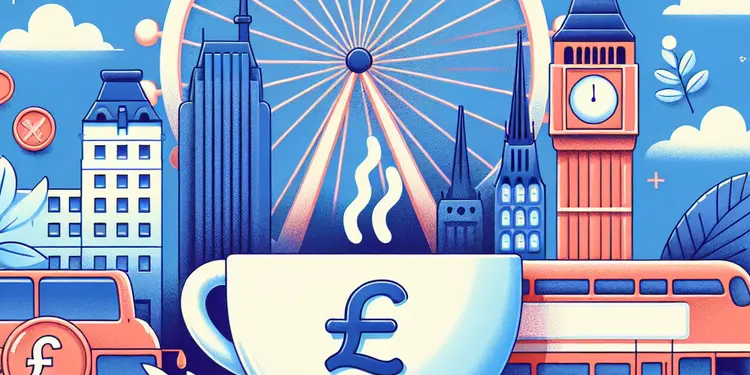
How is health-related anxiety different from general anxiety?
Relevance: 34%
-
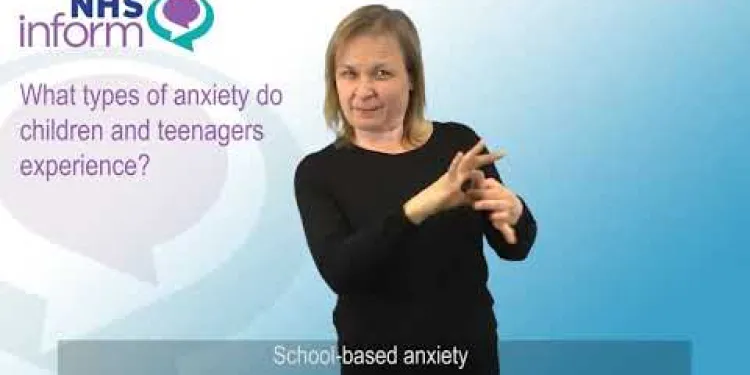
Anxiety in young people
Relevance: 34%
-
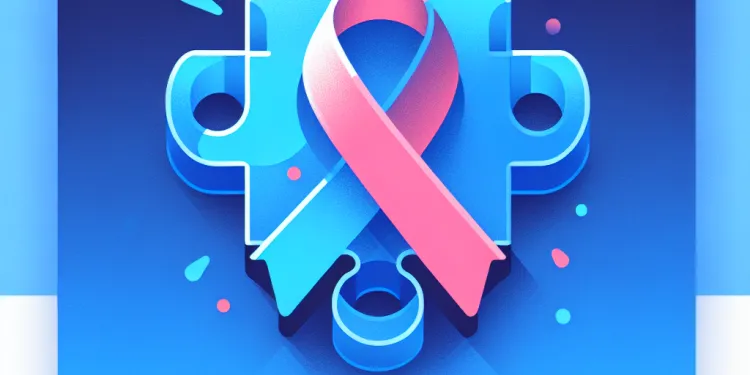
What are some common therapies for autism?
Relevance: 34%
-
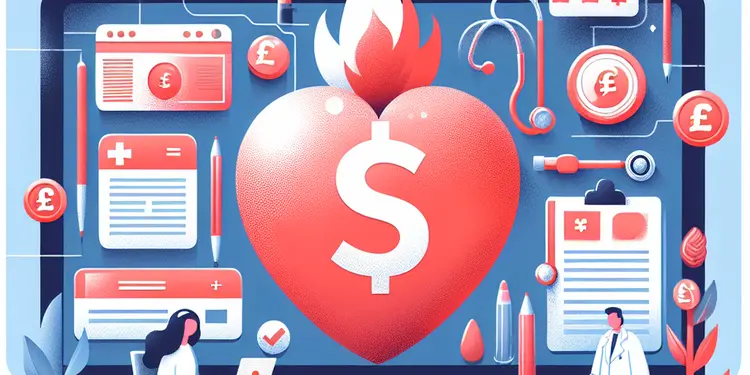
What is health-related anxiety?
Relevance: 33%
-

Is it possible to fully recover from health-related anxiety?
Relevance: 33%
-

Treating anxiety and depression - www.slam.nhs.uk
Relevance: 33%
-
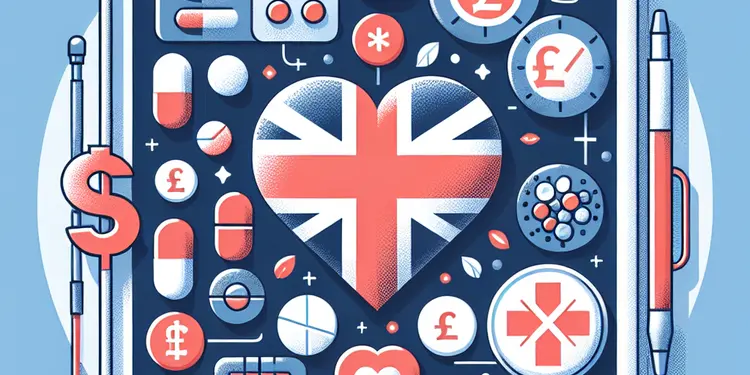
Is medication effective for health-related anxiety?
Relevance: 33%
-

Can lifestyle changes help with health-related anxiety?
Relevance: 33%
-
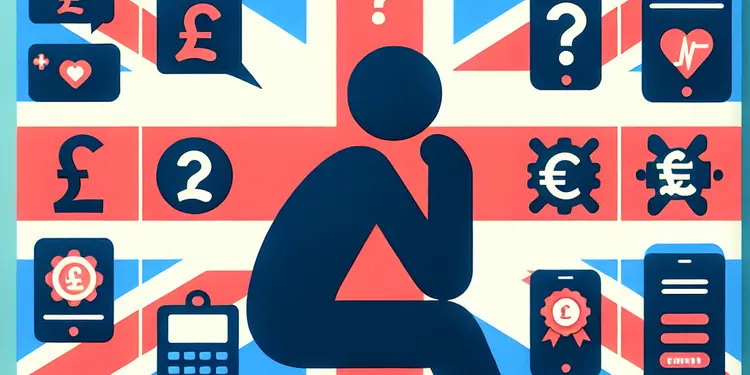
What should someone do if they suspect they have health-related anxiety?
Relevance: 32%
-
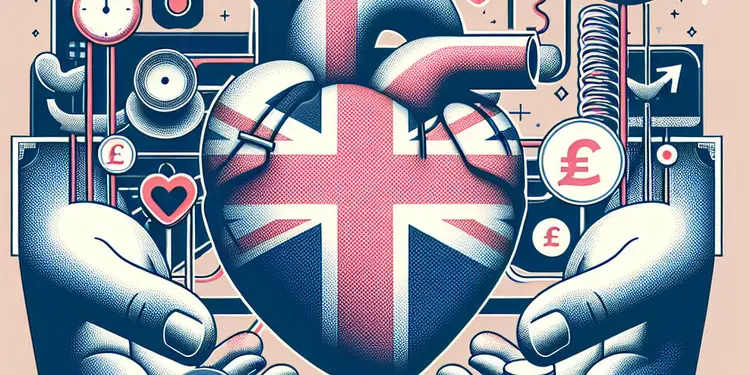
Can health-related anxiety affect relationships?
Relevance: 32%
-
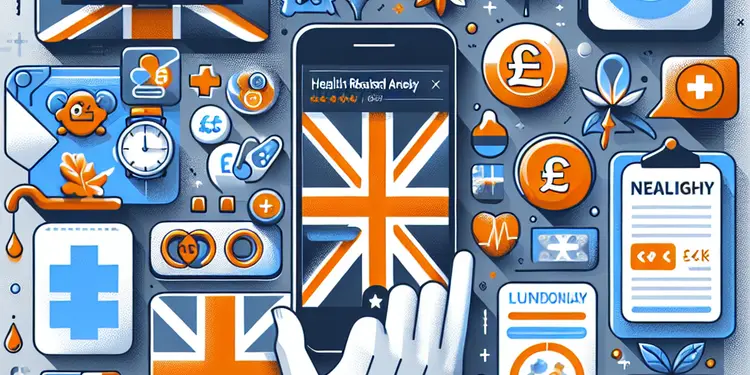
What is health related anxiety?
Relevance: 32%
-
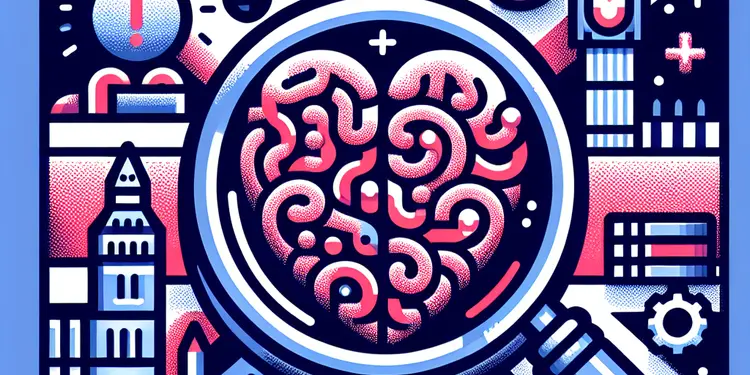
Is health-related anxiety a common condition?
Relevance: 32%
-

Can health-related anxiety lead to actual health problems?
Relevance: 31%
-
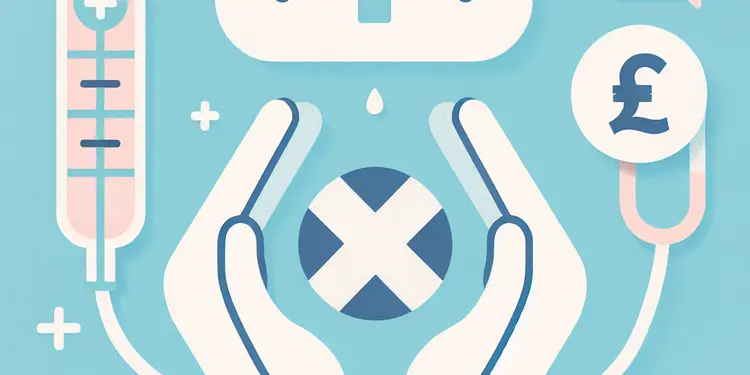
Why is reassurance not always helpful for health-related anxiety?
Relevance: 31%
-
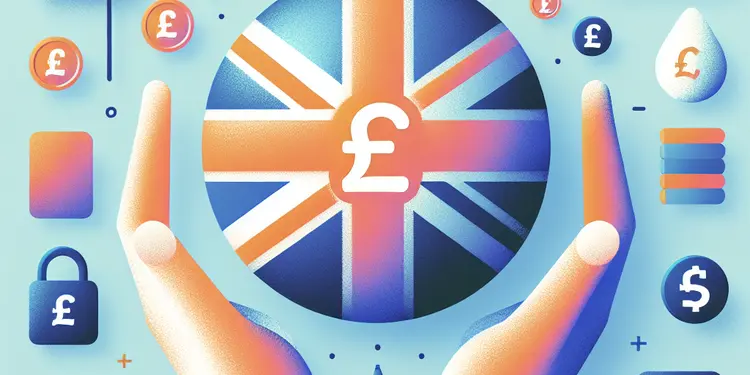
Are there self-help strategies for managing health-related anxiety?
Relevance: 31%
-
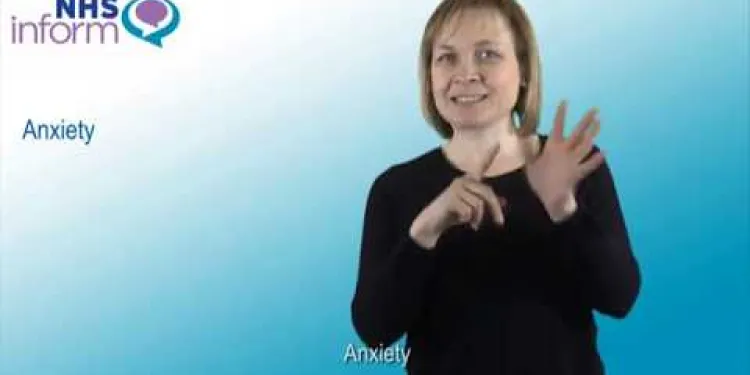
Generalised anxiety disorder (GAD)
Relevance: 31%
-
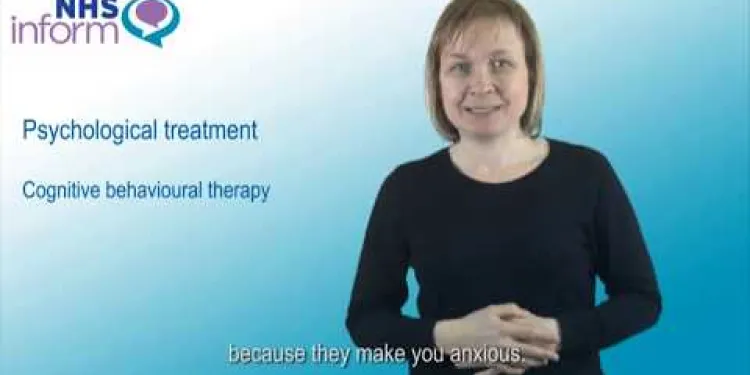
Treating generalised anxiety disorder (GAD)
Relevance: 30%
-

What is ketamine infusion therapy?
Relevance: 30%
-
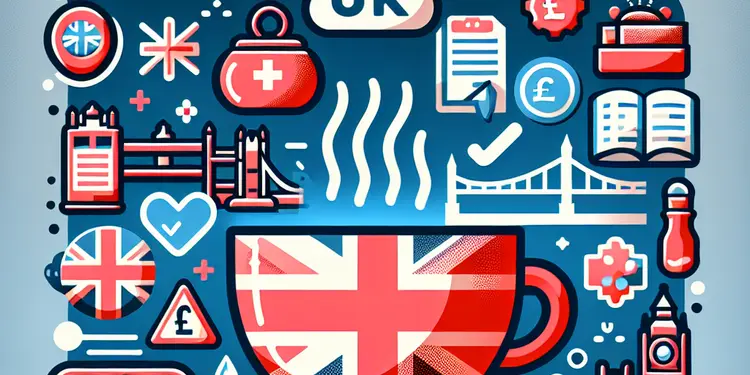
What are common symptoms of health-related anxiety?
Relevance: 30%
-
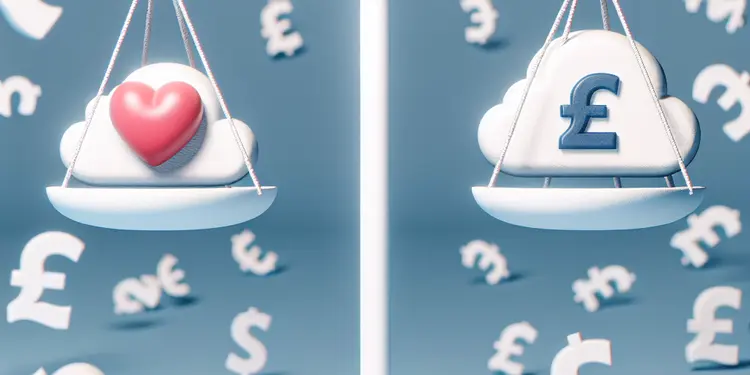
Can children and teens have health-related anxiety?
Relevance: 29%
-
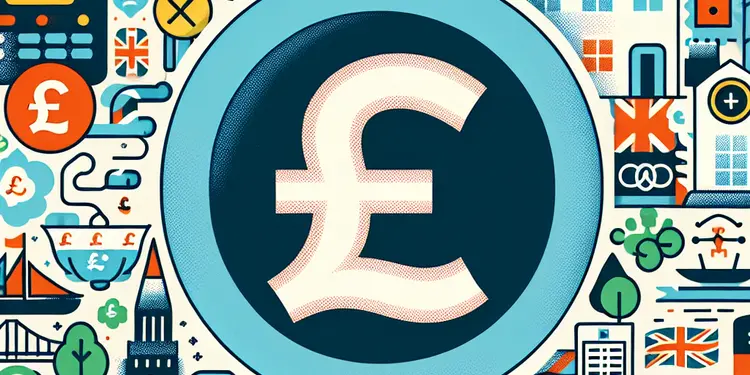
What causes health-related anxiety?
Relevance: 29%
-

Short Films About Mental Health - Anxiety
Relevance: 28%
-
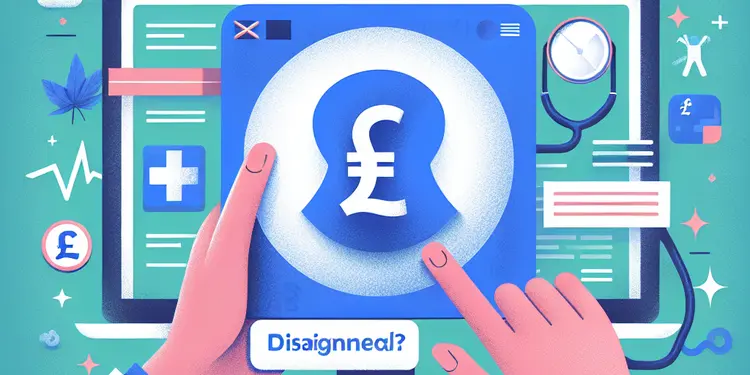
How is health-related anxiety diagnosed?
Relevance: 28%
-
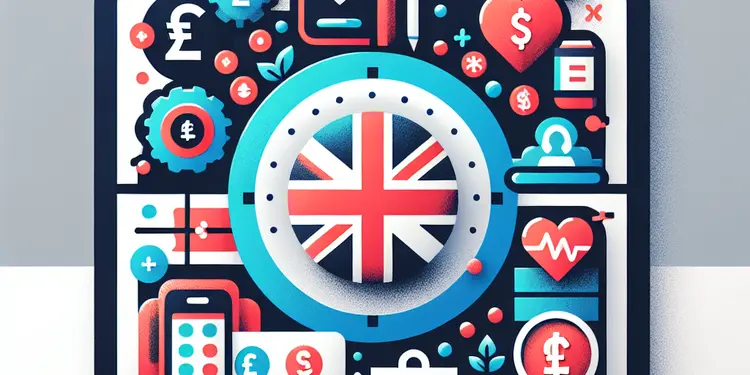
How can family and friends support someone with health-related anxiety?
Relevance: 28%
-
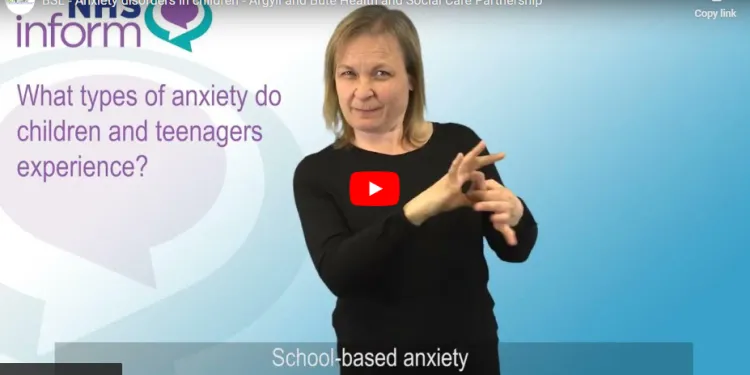
What type of anxiety do children and teenagers experience?
Relevance: 28%
-
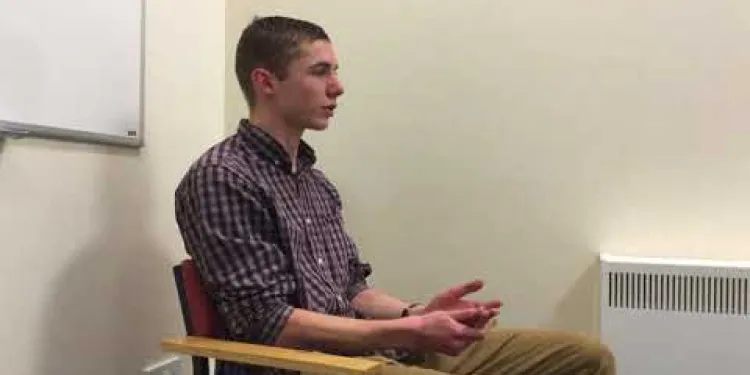
Will's story on having therapy - Stammering
Relevance: 28%
-
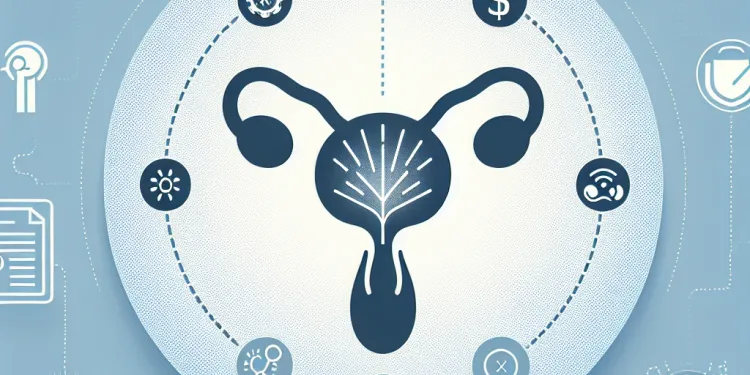
Hormone Therapy for prostate cancer
Relevance: 27%
-

Can health-related anxiety cause physical symptoms?
Relevance: 27%
-

What is radiation therapy?
Relevance: 27%
-
What is the role of therapy in treating eating disorders?
Relevance: 26%
-
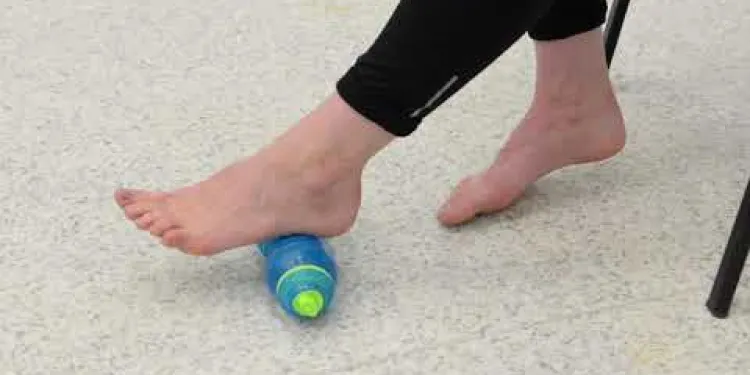
Plantar Fascia Cold Therapy
Relevance: 26%
-
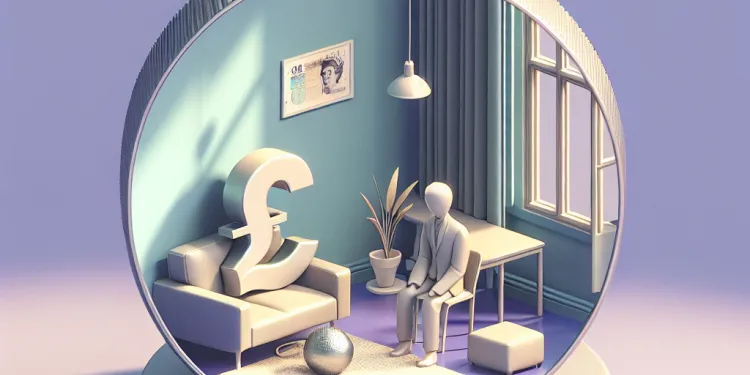
Can therapy help individuals with ADHD?
Relevance: 26%
-
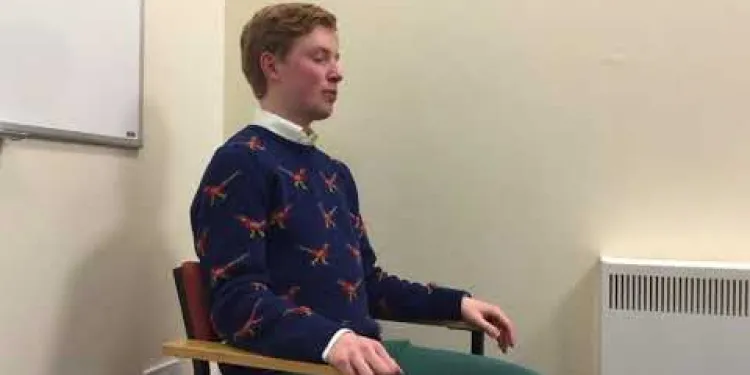
Adam's story on stammering - Therapy
Relevance: 26%
-

What is antiretroviral therapy (ART)?
Relevance: 26%
Introduction to Music Therapy
Music therapy is an established psychological intervention that employs the power of music to address physical, emotional, cognitive, and social needs of individuals. Recognised as a form of complementary medicine, it involves a trained therapist using musical elements such as rhythm, melody, and harmony to facilitate therapeutic interactions, promote wellness, manage stress, and improve the quality of life.
The Nature of Anxiety
Anxiety is a prevalent mental health concern in the UK, affecting millions of people every year. It is characterised by persistent feelings of worry, fear, and apprehension that can significantly impact daily life. Common symptoms include restlessness, increased heart rate, difficulty concentrating, and disrupted sleep patterns. The search for effective treatments is ongoing, and music therapy is emerging as a promising option.
How Music Therapy Reduces Anxiety
Music therapy's role in reducing anxiety stems from its ability to engage the brain and body in a way that conventional therapies might not. Listening to music can lower cortisol levels, the body's primary stress hormone, and promote the release of endorphins, leading to improved mood and relaxation. It also offers a non-verbal outlet for expressing emotions, making it particularly beneficial for individuals who find it challenging to articulate their feelings.
Furthermore, music therapy can help regulate breathing and heart rate through entrainment, where the body's rhythms become synchronised with the beat of the music. This physiological effect can induce a state of calm and relaxation, which is essential in managing anxiety symptoms.
Research Evidence and UK Context
Recent studies in the UK and worldwide suggest music therapy's effectiveness in reducing anxiety levels among various populations, including those with generalised anxiety disorder, cancer patients, and individuals undergoing surgery. Research conducted by the British Association for Music Therapy indicates that musical interventions can lead to significant improvements in mood and reductions in anxiety scores.
The integration of music therapy into the UK's National Health Service (NHS) is gaining traction, with more healthcare providers recognising its potential benefits. It is increasingly offered alongside other treatments, such as medication and cognitive behavioural therapy (CBT), providing a holistic approach to mental health care.
Conclusion
While music therapy is not a standalone cure for anxiety, it is an effective complementary approach that can be used alongside other treatments. Its non-invasive nature, lack of side effects, and cultural relevance make it an accessible option for many. As awareness grows, music therapy could play a crucial role in the future of mental health treatment in the UK, offering a harmonious path to reduced anxiety and improved well-being.
Introduction to Music Therapy
Music therapy is a way to use music to help people feel better. It can help with feelings, thinking, and social skills. In music therapy, a trained person uses music's sounds and beats to help make people feel good, manage stress, and improve their lives.
The Nature of Anxiety
Anxiety means feeling very worried or scared. Lots of people in the UK feel this way every year. Anxiety makes people restless, unable to concentrate, and not sleep well. People are always looking for ways to help, and music therapy is showing promise.
How Music Therapy Reduces Anxiety
Music therapy can help people feel less anxious. Listening to music can help the brain and body relax. It can help lower stress and make you feel happier. Music therapy gives people a way to show their feelings without using words, which can be helpful if talking about feelings is hard.
Listening to music can also help slow down your breathing and heart rate. This helps you feel calm and relaxed, which is important to manage anxiety.
Research Evidence and UK Context
Studies show that music therapy can help lower anxiety for many people. It helps people with general anxiety, cancer patients, and those having surgery feel better. In the UK, more healthcare places are offering music therapy because it helps improve mood and lower anxiety.
The UK's National Health Service (NHS) is using music therapy more often. It's used along with other help like medicine and talking therapy to give people full care.
Conclusion
Music therapy cannot cure anxiety by itself, but it can help a lot when used with other treatments. Music therapy is safe, has no side effects, and fits into many cultures, making it a great choice for many people. As more people learn about it, music therapy may become an important part of helping people with anxiety in the UK.
Frequently Asked Questions
What is music therapy?
Music therapy is a clinical and evidence-based practice where music is used by a trained therapist to achieve therapeutic goals such as reducing anxiety.
How does music therapy help reduce anxiety?
Music therapy can reduce anxiety by promoting relaxation, helping to distract from stressors, and improving emotional expression.
Is there scientific evidence supporting music therapy for anxiety?
Yes, several studies have shown that music therapy can be effective in reducing anxiety, particularly when customized to an individual's needs.
Who can benefit from music therapy for anxiety?
Individuals experiencing anxiety, including children and adults, can benefit from music therapy.
What techniques are used in music therapy to address anxiety?
Techniques can include listening to music, creating music, guided imagery with music, and music and movement exercises.
How long does a music therapy session last?
A music therapy session typically lasts between 30 to 60 minutes, but this can vary depending on the setting and individual's needs.
Do I need to have musical skills to participate in music therapy?
No, having musical skills is not necessary to participate and benefit from music therapy sessions.
Can music therapy be integrated with other forms of therapy for anxiety?
Yes, music therapy can be effectively combined with other treatments, such as cognitive-behavioral therapy or medication, for comprehensive anxiety management.
What kind of music is used in music therapy for anxiety?
The type of music used can vary and is often tailored to the individual's preferences and the therapist’s recommendations, focusing on soothing and calming music.
Is music therapy suitable for children with anxiety?
Yes, music therapy is often used successfully with children to help address anxiety and other emotional or behavioral issues.
How can I find a qualified music therapist?
You can find qualified music therapists through professional organizations, healthcare facilities, or direct referrals from other healthcare providers.
Is music therapy offered in hospitals or clinical settings?
Yes, many hospitals and clinics offer music therapy as part of their mental health and wellness services.
Can music therapy help with other mental health issues besides anxiety?
Yes, music therapy can also be beneficial for depression, PTSD, and other mental health issues.
Is online music therapy an option?
Yes, many music therapists offer virtual sessions, which can be a convenient option for those unable to attend in-person sessions.
How frequently should one attend music therapy sessions to see benefits?
The frequency of sessions can vary but typically attending once a week or bi-weekly is common for many individuals.
Can listening to music on my own be as effective as formal music therapy?
While listening to music can be soothing, working with a trained therapist can provide a structured and tailored approach that's often more effective.
Does insurance cover music therapy sessions?
Coverage for music therapy can vary by insurance plan and region, so it's best to check with your provider.
What qualifications should a music therapist have?
A music therapist should be certified, often holding credentials such as MT-BC (Music Therapist - Board Certified) or equivalent certifications.
What are some potential limitations of music therapy for anxiety?
While beneficial for many, music therapy may not work for everyone, and it's most effective when tailored to the individual's specific needs and combined with other treatments.
Can music therapy be self-administered effectively?
While self-help music activities can be beneficial, professional guidance can enhance the therapeutic process and outcomes significantly.
What is music therapy?
Music therapy is when you use music to help people feel better or express their feelings. It can help people who are sad, worried, or sick.
Ideas to make it easier:
- Listen to your favorite song when you feel upset.
- Try clapping or playing a simple instrument, like a drum.
- You can hum or sing to feel happy.
Music therapy is a way to help people feel better. A trained person helps by using music. It can help people feel less worried or scared.
How can music therapy help you feel less worried?
Music therapy uses music to help people feel better.
Here is how it can help you worry less:
- Music can make you feel calm.
- Listening to music can change your mood.
- Singing or playing instruments can be fun and relaxing.
You can try listening to soft music when you feel worried.
If you want to try music therapy, you can talk to a music therapist. They can help you use music to feel better.
Music therapy can help you feel less worried. It can help you relax, take your mind off things that make you stressed, and make it easier to share your feelings.
Does music help with feeling worried?
Scientists have studied if music can help people feel less worried or anxious. They found that listening to music can be good for calming our minds and making us feel better.
If you feel worried, you can try listening to your favorite music. It might help you feel more relaxed.
You can also use headphones to hear the music better. Try closing your eyes and taking deep breaths while you listen. This can make it easier to feel calm.
Yes, music can help people feel less worried. It works best when the music is picked just for you.
Who can music therapy help with feeling worried?
People who feel worried or scared, like both kids and grown-ups, can feel better with music therapy.
How does music therapy help people feel less worried?
Music therapy uses special ways to help people feel calm.
- Listening: Listening to music can make you feel relaxed.
- Playing instruments: Playing instruments can help you express your feelings.
- Writing songs: Making up songs can help you share your thoughts.
- Singing: Singing can help you feel happy and free.
If you want to try music therapy, a music therapist can help. They understand how to use music to make you feel better. Listening to music at home and playing simple instruments can also help you relax.
Here are some fun ways to use music:
- Listen to your favorite songs.
- Make your own music, like playing an instrument or singing.
- Imagine pictures or stories when you hear music.
- Move your body to the music by dancing or jumping!
How long is a music therapy session?
A music therapy session usually lasts about 30 minutes to 1 hour.
If you have trouble understanding, you can ask someone to help you read or listen to the information.
A music therapy session usually takes between 30 minutes to 1 hour. But this can change depending on where it happens and what the person needs.
Do I need to know music to join music therapy?
No, you don't need to know music to join music therapy. You can enjoy music therapy even if you can't play an instrument or read music.
Music therapy is for everyone! You can use it to feel better, relax, or express your feelings.
Helpful tools: - Listen to music: Find songs you like. - Use apps: Try apps that play calming sounds. - Join a group: Being with others can make it more fun.
You don't need to know how to play music to join in and have fun in music therapy.
Can music therapy be used with other therapies to help anxiety?
Music therapy can help people feel better. We can use it with other therapies. This can help even more.
For people with anxiety, music therapy can be calming. It works well with talking therapy and exercise therapy.
Try listening to calming music or playing an instrument. Ask your therapist if you can use music in your sessions.
Yes, music therapy can help when used with other treatments. It works well with talking therapy or medicine to help people with anxiety.
What music helps with feeling worried?
Music can help us feel calm and happy. Here are some types of music that can help when you feel worried:
- Calm Music: Soft and slow music can help you feel relaxed.
- Nature Sounds: Sounds like rain or birds singing can be soothing.
- Classical Music: This kind of music is gentle and can make you feel peaceful.
- Choose Your Favorites: Listen to music you love; it can make you feel good!
You can use headphones to listen to music quietly. Apps like Spotify or YouTube have lots of music choices. Try different types to see what helps you the most.
The kind of music can be different for everyone. It is usually chosen to match what the person likes and what the therapist thinks is best. The music should be gentle and help you feel calm.
Can music therapy help children who feel worried?
Yes, music therapy can help kids feel better. It is used to help with worries and feelings or behavior problems.
How can I find a good music therapist?
Here is how you can find a music therapist to help you:
- Ask your doctor or teacher for help. They might know someone.
- Look online for groups that help people with music therapy.
- Ask your family or friends if they know a music therapist.
- Visit your local library or community center. They might have information.
When you find a music therapist, make sure:
- They have the right training and certificates.
- You feel comfortable and happy with them.
- They listen and understand what you need.
You can also use tools like a computer or a phone to help look for a music therapist.
You can find music helpers by asking groups for music therapy, visiting healthcare places, or getting help from doctors or nurses you know.
Can you get music therapy in hospitals or clinics?
Yes, many hospitals and clinics have music therapy. Music therapy can help people feel better and is good for mental health.
Can music therapy help with mental health problems other than anxiety?
Music therapy can be a way to help people feel better. It can help with more than just anxiety. Music can help with sadness, stress, and other feelings too.
When people listen to music or make music, it can make them feel happy or calm. This can be very good for their mental health.
Some people might talk to a music therapist. A music therapist is someone who knows a lot about using music to help people feel better.
One way to try music therapy is to listen to music you like. You can also try playing an instrument or singing.
Some apps and websites can help you use music for feeling better. You can try using them too!
Yes, music can help you feel better if you are sad, have bad dreams, or feel worried a lot.
Can we do music therapy online?
Music therapy is using music to help people feel better.
We can do music therapy on the internet. This means you can have sessions at home.
Some tools can help, like video calls and online music games.
If you have any questions, ask a helper or a parent to help you.
Yes, some music therapists can meet with you online. This can be helpful if you can't go to their place in person.
How often should someone go to music therapy to feel better?
Music therapy can help you feel good. Going to sessions regularly is important.
Simple tips:
- Try to go once a week.
- If you like it, go more often.
- Talk to the therapist about what works best for you.
Using a calendar or reminder app can help you remember your sessions.
Most people go to sessions once a week or every two weeks.
Can listening to music alone help like music therapy?
Listening to music by yourself can make you feel good. It can help you relax and feel happy. Music therapy is when a trained person uses music to help with your feelings and health. Both can be helpful, but they are a bit different.
If you want to try music therapy, you might need to talk to a music therapist. You can also use headphones to listen to your favorite songs and see how it makes you feel.
Listening to music can make you feel calm. But working with a therapist can help even more. A therapist has special training to help you in a way that is just right for you.
Will insurance pay for music therapy?
Here is what can help you understand:
- Ask your insurance company.
- Talk to your doctor about it.
- Visit the insurance website.
Different insurance plans pay for music therapy in different ways. It can also depend on where you live. It's a good idea to ask your insurance company for details.
What skills do music healers need?
Music healers help people feel better using music. To be a music healer, a person should:
- Be good at playing music.
- Understand how music can help people feel happy or calm.
- Go to school to learn about music healing.
- Get a special paper called a "certificate" to show they are trained.
Tools and tips that may help include:
- Listening to different types of music.
- Using apps or tools to learn about music.
- Practicing music every day.
- Talking with someone who is already a music healer.
A music therapist should have special training and a certificate. They might have something called MT-BC, which means Music Therapist - Board Certified.
What are some things music therapy might not help with for anxiety?
- Music therapy might not work for everyone.
- Some people might not like the music used.
- It might not fix big problems by itself.
- It works best with other treatments like talking therapy or medicine.
- It can take time to feel better with music therapy.
Music therapy helps a lot of people, but it might not help everyone. It works best when it is made just for you and used with other treatments.
Can you do music therapy on your own?
Music therapy can help people feel better. It is possible to do music therapy by yourself.
Here are some easy ways to try music therapy:
- Listen to music you like and relax.
- Sing along to songs that make you happy.
- Play a simple instrument, like a drum or a shaker.
You can also ask a grown-up or a friend to help you with music therapy.
Doing music activities by yourself can be good. But having an expert help you can make it much better for healing and feeling good.
Useful Links
This website offers general information and is not a substitute for professional advice.
Always seek guidance from qualified professionals.
If you have any medical concerns or need urgent help, contact a healthcare professional or emergency services immediately.
Some of this content was generated with AI assistance. We’ve done our best to keep it accurate, helpful, and human-friendly.
- Ergsy carfully checks the information in the videos we provide here.
- Videos shown by Youtube after a video has completed, have NOT been reviewed by ERGSY.
- To view, click the arrow in centre of video.
- Most of the videos you find here will have subtitles and/or closed captions available.
- You may need to turn these on, and choose your preferred language.
- Go to the video you'd like to watch.
- If closed captions (CC) are available, settings will be visible on the bottom right of the video player.
- To turn on Captions, click settings .
- To turn off Captions, click settings again.
More Items From Ergsy search
-

Can Music Therapy Be the Key to Reducing Anxiety?
Relevance: 100%
-

How does cognitive-behavioral therapy help with health-related anxiety?
Relevance: 45%
-

Can loud music cause tinnitus?
Relevance: 45%
-

Coping with Stress and Anxiety
Relevance: 37%
-

Anxiety | NHS
Relevance: 36%
-

What are common treatments for health-related anxiety?
Relevance: 35%
-

How is health-related anxiety different from general anxiety?
Relevance: 34%
-

Anxiety in young people
Relevance: 34%
-

What are some common therapies for autism?
Relevance: 34%
-

What is health-related anxiety?
Relevance: 33%
-

Is it possible to fully recover from health-related anxiety?
Relevance: 33%
-

Treating anxiety and depression - www.slam.nhs.uk
Relevance: 33%
-

Is medication effective for health-related anxiety?
Relevance: 33%
-

Can lifestyle changes help with health-related anxiety?
Relevance: 33%
-

What should someone do if they suspect they have health-related anxiety?
Relevance: 32%
-

Can health-related anxiety affect relationships?
Relevance: 32%
-

What is health related anxiety?
Relevance: 32%
-

Is health-related anxiety a common condition?
Relevance: 32%
-

Can health-related anxiety lead to actual health problems?
Relevance: 31%
-

Why is reassurance not always helpful for health-related anxiety?
Relevance: 31%
-

Are there self-help strategies for managing health-related anxiety?
Relevance: 31%
-

Generalised anxiety disorder (GAD)
Relevance: 31%
-

Treating generalised anxiety disorder (GAD)
Relevance: 30%
-

What is ketamine infusion therapy?
Relevance: 30%
-

What are common symptoms of health-related anxiety?
Relevance: 30%
-

Can children and teens have health-related anxiety?
Relevance: 29%
-

What causes health-related anxiety?
Relevance: 29%
-

Short Films About Mental Health - Anxiety
Relevance: 28%
-

How is health-related anxiety diagnosed?
Relevance: 28%
-

How can family and friends support someone with health-related anxiety?
Relevance: 28%
-

What type of anxiety do children and teenagers experience?
Relevance: 28%
-

Will's story on having therapy - Stammering
Relevance: 28%
-

Hormone Therapy for prostate cancer
Relevance: 27%
-

Can health-related anxiety cause physical symptoms?
Relevance: 27%
-

What is radiation therapy?
Relevance: 27%
-
What is the role of therapy in treating eating disorders?
Relevance: 26%
-

Plantar Fascia Cold Therapy
Relevance: 26%
-

Can therapy help individuals with ADHD?
Relevance: 26%
-

Adam's story on stammering - Therapy
Relevance: 26%
-

What is antiretroviral therapy (ART)?
Relevance: 26%


